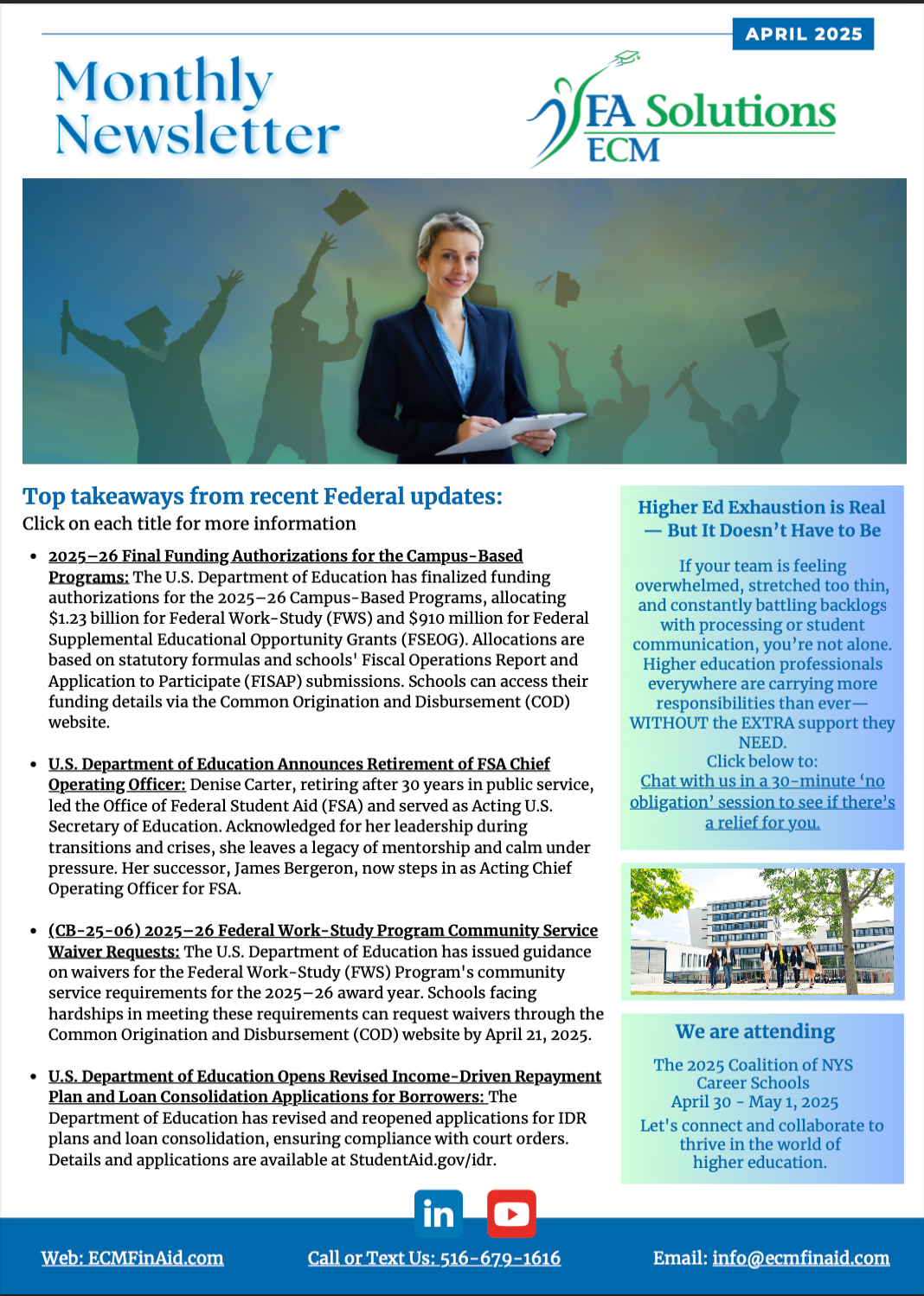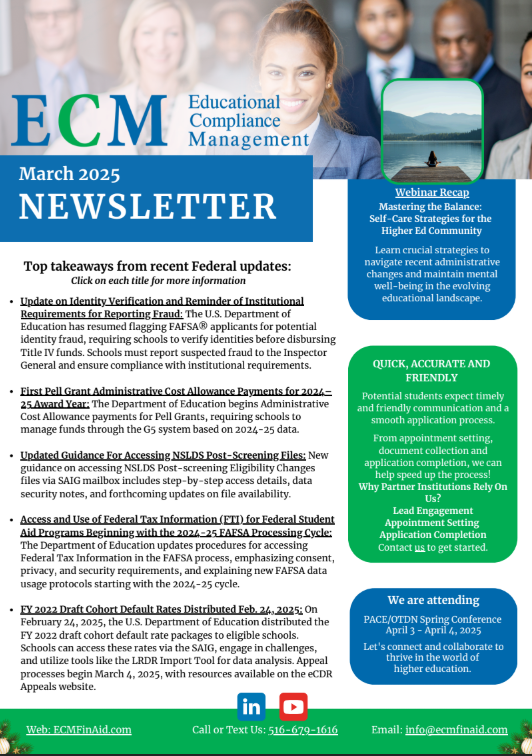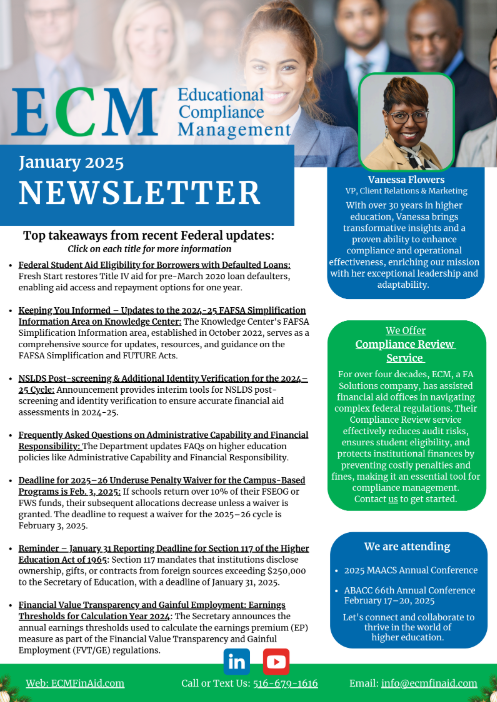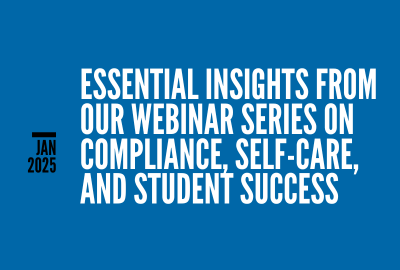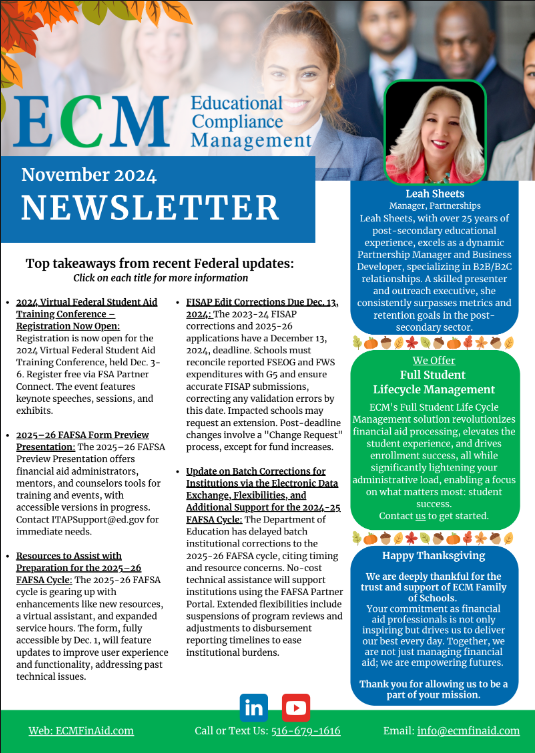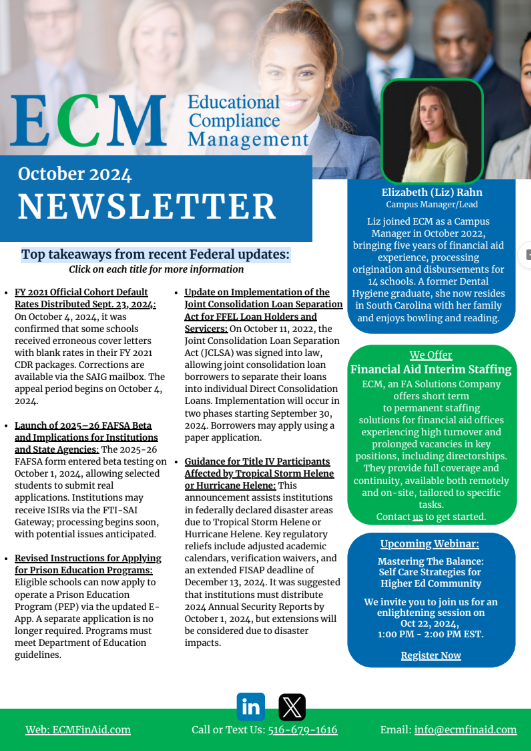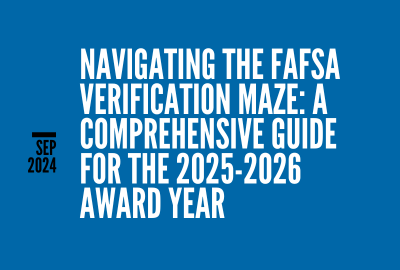Top 5 reasons Schools Need to Review their Policies and Procedures Annually
By Rachel Gordon, June 1 2022
The U.S. Department of Education (ED) issued an estimated $112 billion for grants, loans and work-study programs in fiscal year (FY) 2021 through Federal Student Aid (FSA). When instances of errors in the funding of these programs occur, the current maximum fine per violation is $59,017. Errors do not usually arise in isolation and when there are multiple findings, the associated costs can add up rather quickly. Liabilities are placed against schools for findings such as awarding funds to ineligible programs or ineligible students and mishandling of federal funds. If the findings are grave enough, there can be severe penalties for schools, from onerous additional steps to receive funding to total loss of eligibility to participate. The financial & administrative penalties illustrate how important it is for schools to avoid findings from an ED program review by reviewing the institutional policies and procedures annually. The following list shows the top five things to look for when performing these reviews.
1. Failure to Take Corrective Action
Schools must demonstrate a capability to properly administer federal aid programs. ED auditors view repeated findings very seriously because it indicates a school has not made the required corrective action to address any known issues. This omission has the potential to also illustrate the school has a lack of administrative capability or financial responsibility over Title IV funds. Repeated findings are taken very seriously by the Department of Education. It is of the utmost importance for a school to rectify any issues isolated in an audit or program review and create policies and procedures to ensure future compliance. This will often involve collaboration with other departments at the institution, so it is critical for compliance that the interdepartmental communication occur.
2. Inaccurate or Late Reporting
Schools must report current enrollment status for all current and prior Title IV aid recipients. It is crucial for school to report any changes in student status as timely as possible, which will ensure that the student is placed in the proper repayment status. Failing to report changes in enrollment status is one of the most common types of late reporting, in the same category inaccurate reporting of program data is also a common finding. Important to note is the fact that errors in the submission of data will prevent the update from being accepted. Proper procedures must be in place to ensure timely and accurate reporting of student enrollment as well as procedures for ensuring that any errors are addressed.
3. R2T4 Errors
When a student withdraws, schools must determine what portion of Title IV aid they have earned using the Return To Title IV (R2T4) calculation. These calculations can be complex and provide many opportunities for errors. Errors resulting from incorrect or late calculations are some of the top findings in annual audits and program reviews. Many schools have turned to technology to assist them in the R2T4 process. They either utilize the COD functionality or modules in their Student Information Systems. Regardless of the tool used, it is important that the school ensure the data being utilized is correct as the formula is based upon all information entered into the calculation. A small mistake can have large compliance & financial repercussions for the student and institution.
4. Late R2T4 Funding
Schools must complete their R2T4 calculations within 14 days after a student is determined to be withdrawn. Common reasons for missing this deadline include inadequate policies and procedures for tracking student withdrawals and inadequate monitoring of R2T4 deadlines. Software solutions can help with these problems, provided they are properly integrated into the school’s existing workflow. For example, these systems must automatically transfer data to each other, ensuring that administrators retain a clear view of their processes without resorting to manual data entry. If a software solution is not available, it is of utmost importance that student withdrawals be reported to the financial aid office as soon as they are processed by the registrar. Schools must also ensure that the unearned portion of funds be returned no later than 45 days after its determination that the student withdrew.
5. Verification Violations
Schools must verify the information that applicants have provided on their Free Application for Federal Student Aid (FAFSA) forms and sent to the school on the student’s ISIR (Institutional Student Information Record). ED publishes an annual notice formally identifying the ISIR data that schools must verify, which typically includes items such as: the applicant’s household size, income, or high school completion information. ED will identify which documents are needed for each selected student. Failure to verify this information can result in students receiving Title IV funding ineligibly. The school must have processes in place to identify students selected for verification by ED as well as processes to identify conflicting information. The school must be able to maintain documentation that supports the verfied FAFSA data.
ECM can help you maintain a fully compliant Financial Aid Office that meets your needs. Contact us today for more information on our services.



